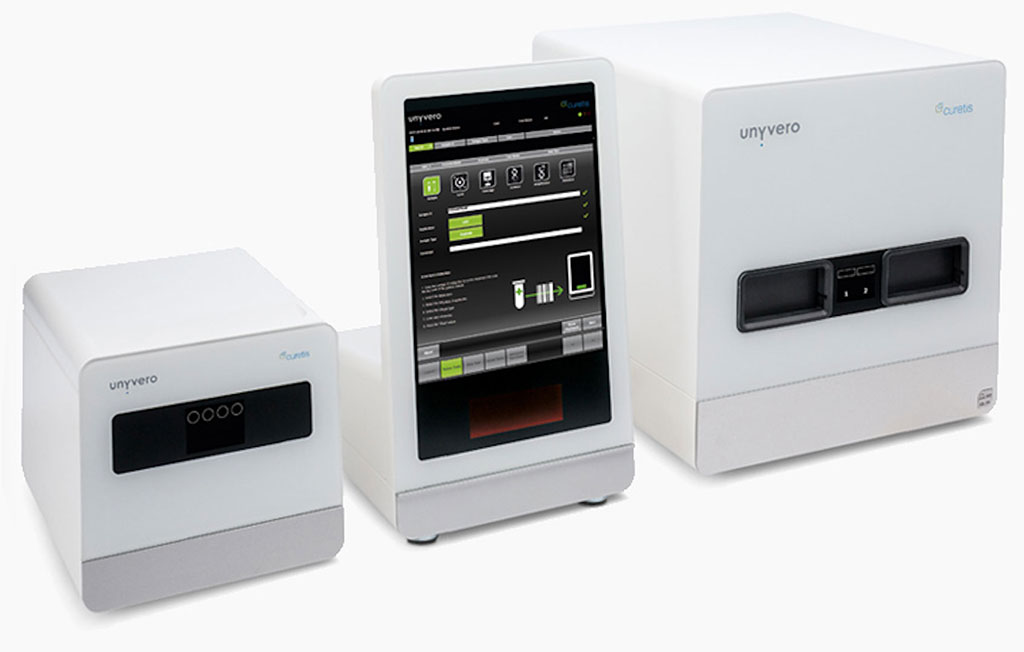Rapid Molecular Diagnostics Platform Uses Multiplex PCR Technology for Fast Diagnosis of Severe Infectious Diseases
Posted on 20 Apr 2023
In order to improve patient outcomes in cases of bacterial co-infections like severe pneumonia, rapid detection of pathogens and associated resistance markers is crucial to guide appropriate antibiotic treatment. Now, a cutting-edge molecular diagnostic platform can reliably and accurately diagnose severe infectious diseases by using multiplex PCR technology to detect a wide range of microorganisms, antibiotic resistance markers, or toxins from sample-to-answer within 4-5 hours.
Curetis GmbH’s (Holzgerlingen, Germany) Unyvero A50 system is designed to support various applications for diagnosing severe infectious diseases through syndromic testing. The Unyvero A50 system offers five panels to test for Hospitalized Pneumonia (HPN), Blood Stream Infections (BCU), Implant & Tissue Infections (ITI), Intra-Abdominal Infections (IAI), and Urinary Tract Infections (UTI). Unyvero's multiplex diagnostic panels employ a molecular approach using multiplex PCR technology to detect a wide range of clinically relevant microorganisms and antibiotic resistance markers. This allows for the rapid and accurate identification of infectious agents within less than five hours. The ability to concurrently detect various clinically relevant microorganisms and antibiotic resistance in a single test facilitates prompt identification of likely pathogens and more rapid, targeted antibiotic selection.

The Unyvero multiplex diagnostic panels include the Unyvero Hospitalized Pneumonia (HPN) Cartridge, which tests for 38 reportable targets (21 pathogens and 17 resistance genes) within 4-5 hours, enabling targeted syndromic treatment during the critical early hours of infection. The Unyvero panel range also features the Unyvero Implant & Tissue Infection (ITI) Cartridge, which tests for 46 reportable targets (29 pathogens and 17 resistance genes) and delivers results with high sensitivity and specificity within 4-5 hours. This test panel allows physicians to swiftly diagnose infections and determine the most effective treatment.
Additionally, the Unyvero multiplex diagnostic panels include the Unyvero Blood Culture (BCU) Cartridge for positive blood cultures, testing for 50 reportable targets (34 pathogens and 16 resistance genes) with a single sample, delivering results with high sensitivity and specificity within 4-5 hours. Additionally, the panels range features the Unyvero Intra-Abdominal Infection (IAI) Cartridge, which tests for 50 targets (26 pathogens, 2 toxins, and 22 resistance genes) with a 4-5 hour sample-to-answer time. Based on this comprehensive analysis, physicians can promptly decide on the most suitable treatment path, resulting in improved outcomes, reduced hospital stays, and decreased healthcare costs.
Related Links:
Curetis GmbH











 (3) (1).png)


